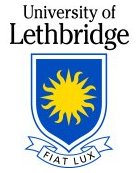Section 2 Course Description
¶Subsection 2.1 Overview
Math 2090 is a mathematics course intended for students who would not otherwise take a course in mathematics at university, and intend to train as elementary school teachers in the Faculty of Education. No particular mathematical background is assumed, and some prior discomfort with mathematics is anticipated.
Since Math 2090 is a terminal course, we have some freedom in the topics we'll cover. Most of the topics will be set ahead of time, but some will be chosen according to class preferences. We will begin with a short review of basic arithmetic before moving on to the historical evolution of numbers. This will lead to a discussion of different ways to represent numbers, including numbers in other bases.
The “higher mathematics” portion of the course begins with a look at different sets of numbers, such as integers, rational numbers, and real numbers. We'll briefly look at the mathematical concept of sets, and the abstract notion of a binary operation on a set. Binary operations include familiar ideas such as addition and multiplication. By studying binary operations in the abstract, we hope to gain a deeper understanding of why the rules of arithmetic work the way that they do.
Addtional topics will include prime numbers and divisibility, and modular arithmetic. Modular arithmetic is sometimes known as “clock arithmetic”: it is the sort of counting that takes place whenever the count “resets” after a fixed value; 12, in the case of a clock, where \(8+6=2\text{,}\) since 6 hours after 8 o'clock, it is 2 o'clock!
Subsection 2.2 Tentative topcis schedule
- Week 1 (January 7 - 11): Numeration systems, adventures in arithmetic.
- Week 2 (January 14 - 18): Historical development of numeration systems.
- Week 3 (January 21 - 25): Numbers in other bases.
- Week 4 (January 28 - February 1): Sets and set operations.
- Week 5 (February 4 - 8): Binary operations and their properties.
- Week 6 (February 11 - 15): Sets of numbers.
- Week 7 (February 25 - March 1): Division and Fractions.
- Week 8 (March 4 - 8): Congruence.
- Week 9 (March 11 - 15): Modular arithmetic.
- Week 10 (March 18 - 22): Divisibility and prime numbers.
- Week 11 (March 25 - 29): Greatest common divisors.
- Week 12 (April 1 - 5): Class choice.
For the final week (or two weeks, depending on how fast we progress, and whether we skip any topics), the class will decide what we discuss. Topics should involve connections between mathematics and society. Examples could include encryption, voting, finance, statistics, etc.
